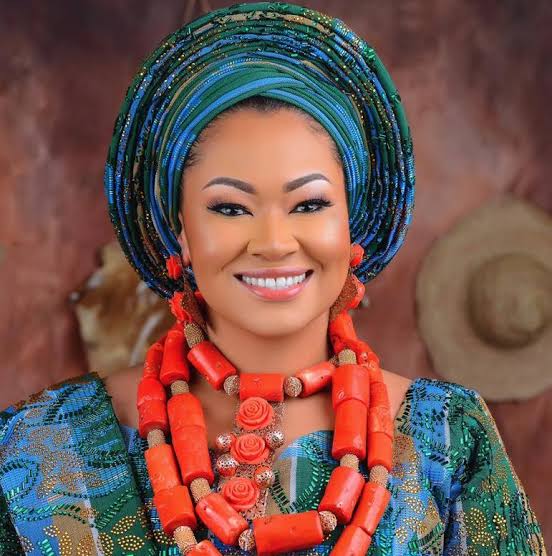Senator Natasha Akpoti-Uduaghan and the Revival of Ancestral Spirituality in Nigeria
In recent discussions surrounding faith and cultural identity, we observed that Senator Natasha Akpoti-Uduaghan has drawn attention for her devotion to Osun, the ancient Yoruba goddess of water. While Christianity and Islam dominate Nigeria’s religious landscape, her spiritual connection to an indigenous deity highlights the enduring presence and significance of traditional African spirituality in modern times.

The Case for Ancestral Religion
Throughout history, civilizations across the world have maintained strong ties to their indigenous spiritual traditions. In India, Hinduism continues to thrive alongside modernization, with deities like Lakshmi and Saraswati revered for prosperity and wisdom. In South America, many indigenous tribes still pay homage to their gods through rituals and festivals that predate colonial influences. Even in China and Japan, traditional spiritual practices such as Taoism and Shintoism remain integral to societal values and governance.
In contrast, many African nations, including Nigeria, have often relegated their ancestral religions to the background, influenced by foreign doctrines that condemn indigenous beliefs. This has led to a cultural disconnect, with many Africans struggling to reconcile their faith with their roots. However, recent years have seen a growing movement encouraging Africans to embrace their ancestral heritage as a means of spiritual and cultural identity. There is a call by Nigerians led by Prof. Wole Soyinka to have an official holiday for the ancestral religious celebration like Christmas & Easter for Christians, Eid el Fitr, and Eid El Malud for Muslims.

Osun: A Divine Intermediary in Yoruba Spirituality
The Yoruba goddess Osun, associated with fertility, healing, and divine intervention, is widely celebrated, particularly during the Osun-Osogbo Festival, which attracts devotees from across the world. Many testify to miraculous healings, resolutions of personal struggles, and restored fertility after seeking Osun’s blessings.
While some view the worship of Osun as a rejection of mainstream religions, others argue that ancestral deities serve as intermediaries between humans and the Supreme Creator, much like saints in Christianity especially Catholics, prophets in Islam. In Yoruba belief, one can not deny the power of water, as it is essential for survival—used for drinking, cleansing, and travel. Thus, reverence for a water deity is deeply symbolic.

Faith, Identity, and Cultural Expression
Senator Akpoti-Uduaghan, despite her frequent use of the hijab, exemplifies the reality that cultural and spiritual identities are not always defined by outward appearances. In North-Central Nigeria, many non-Muslim women adopt head coverings as a fashion choice rather than a religious obligation. Similarly, many Yoruba Muslim women still practice Isese (traditional religion) alongside Islam, while some Christian leaders are rumored to seek spiritual guidance from traditional deities in private.
This debate sheds light on the broader issue of religious exclusivity versus cultural inclusivity. Should Nigerians reject the spiritual systems of their ancestors in favor of foreign doctrines? Or should they, like India, China, and South American nations, find ways to integrate both ancient and modern faiths for a balanced spiritual identity?

The Way Forward
Rather than viewing traditional African spirituality as contradictory to Islam or Christianity, it could be recognized as a complementary system that offers solutions to life’s challenges. There are cases in which Christians or Muslims could not handle successfully, but the Traditional religions resolved them successfully. By reconnecting with ancestral practices, Nigerians may find a more profound sense of identity, empowerment, and spiritual balance.
Senator Natasha Akpoti-Uduaghan’s journey to the Osun deity serves as a reminder that Africa’s spiritual heritage remains relevant and valuable, not just as history, but as a living force that continues to guide, heal, and protect its people. Whether in times of distress or personal reflection, ancestral traditions may hold the key to reconciliation, restoration, and sustainability in a world where cultural identity is constantly being redefined.
Princess Dr. Gloria. A. Adebajo-Fraser MFR.
Founder, The National Patriots.
Publisher, Headlinenews.news.




